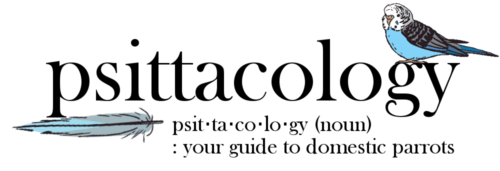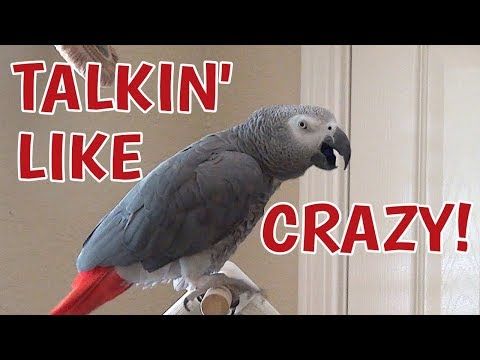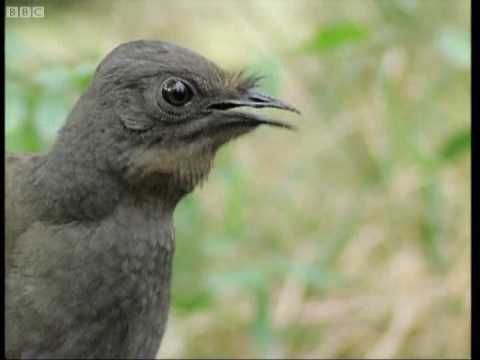One of the most well-known characteristics of parrots is their potential to pick up and imitate imitate human speech, tunes and sounds they hear around the house. Some of them can learn to be extremely good at it! But… what purpose does this actually serve for them? Why do parrots talk?
In this post, let’s have a look at all the ins and outs of parrots’ speech and their capacity to imitate sounds!
So, why do parrots talk?
There are multiple related reasons for parrots to use their vocal abilities and smart brains to mimic humans and other sounds. According to research, they appear to do it for:
Flock acceptance
In the wild, it’s immensely important for a parrot to be part of a group (also known as a flock). Flocking offers plenty of advantages: safety in numbers, searching for foraging spots together and even helping to raise each other’s chicks in some cases. Because of this, parrots have evolved to become highly social.
In nature, different parrot flocks actually develop different “accents” that they can use to distinguish which birds are part of their family. Parents and chicks match their calls, and so do bonded pairs.
For a little personal example, here at Psittacology headquarters, one of our budgies lost its mate and ended up hanging out more with our cockatiels when they were all out of their cages. Lo and behold… it took the budgie all of about a month to start speaking fluent cockatiel! Same flock calls, same song, all perfectly reproduced.
In captivity, we humans are seen as part of the flock. As a result, your parrot might learn to imitate human speech in order to fit into the family. Feeling like it’s accepted helps bolster its sense of safety, especially in solo parrots or those that spend a lot of time with their owners.
Did you know? Not all parrots have the same talent for talking. It depends on factors like species and sex, and it’s highly individual. Some never learn how to do it! You can find out which are the best and worst talkers in the post on which parrots talk.
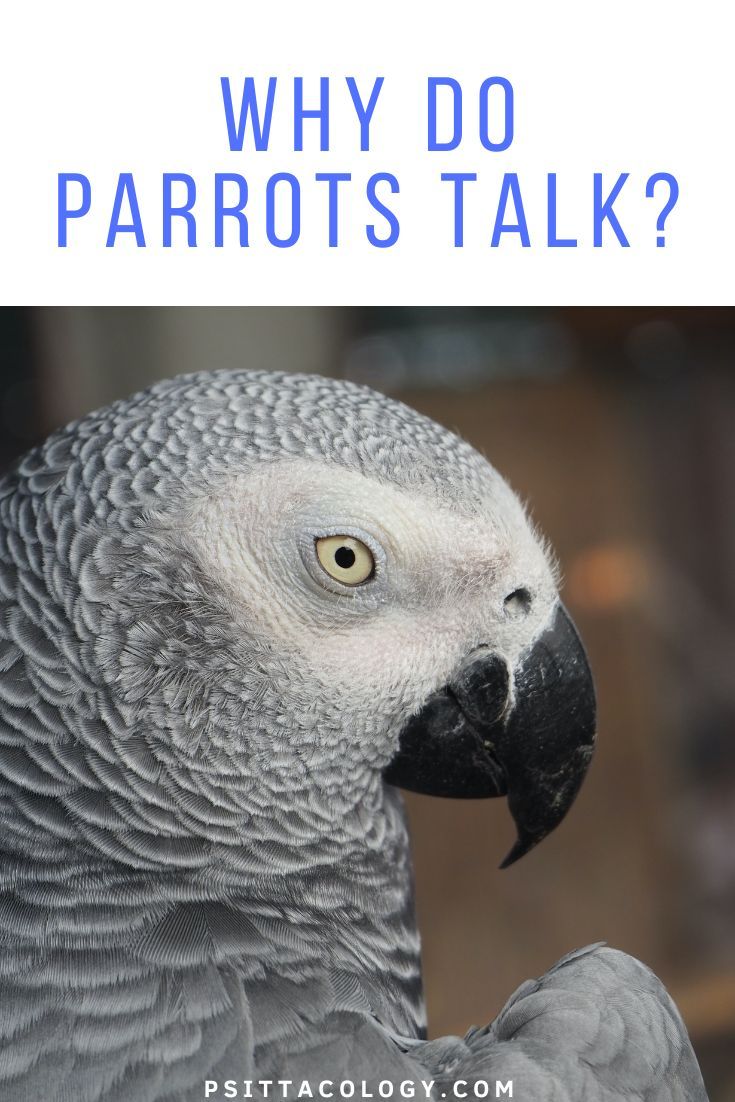
Positive reinforcement
With pet parrots, especially the ones that have been trained specifically to talk and have received praise for it in the past, it’s not difficult to see why they are motivated to speak.
After all, our birds love positive reinforcement in the form of attention or a treat. As such, they might have started off by copying human speech and sounds in order to fit into the flock, but quickly learned that the behavior had another advantage: praise.
Even if you don’t offer treats as a reward for speaking, your own enthusiasm is often enough to make your parrot happy. They respond very strongly to any commotion, like when you raise your voice and start speaking excitedly because your bird has done something you like.
Practice
It’s not unusual for a pet parrot to sit in its cage and talk up a storm even if it’s not receiving any attention or snacks in return. Budgies and African greys, for example, can spend hours chattering to themselves when there’s no one around!
The reason for this is that parrots do practice their song and calls. And of course, in cases of pet parrots that have replaced much of their natural vocalizations with human speech and sounds from around the house, this can result in long monologues of “pretty bird” and microwave beeps.
One study compared this behavior to the way children acquire speech. Sitting and talking to yourself is quite useful when practicing. It helps to facilitate and improve new connections in the language part of the brain, among other things!
Did you know? Despite their small size, budgies are very adept at imitating human speech. According to the Guinness Book of World Records, the bird with the largest vocabulary was named Puck. Puck passed away in 1994 and learned an estimated 1728 words during his lifetime.
“Largest vocabulary for a bird ever“
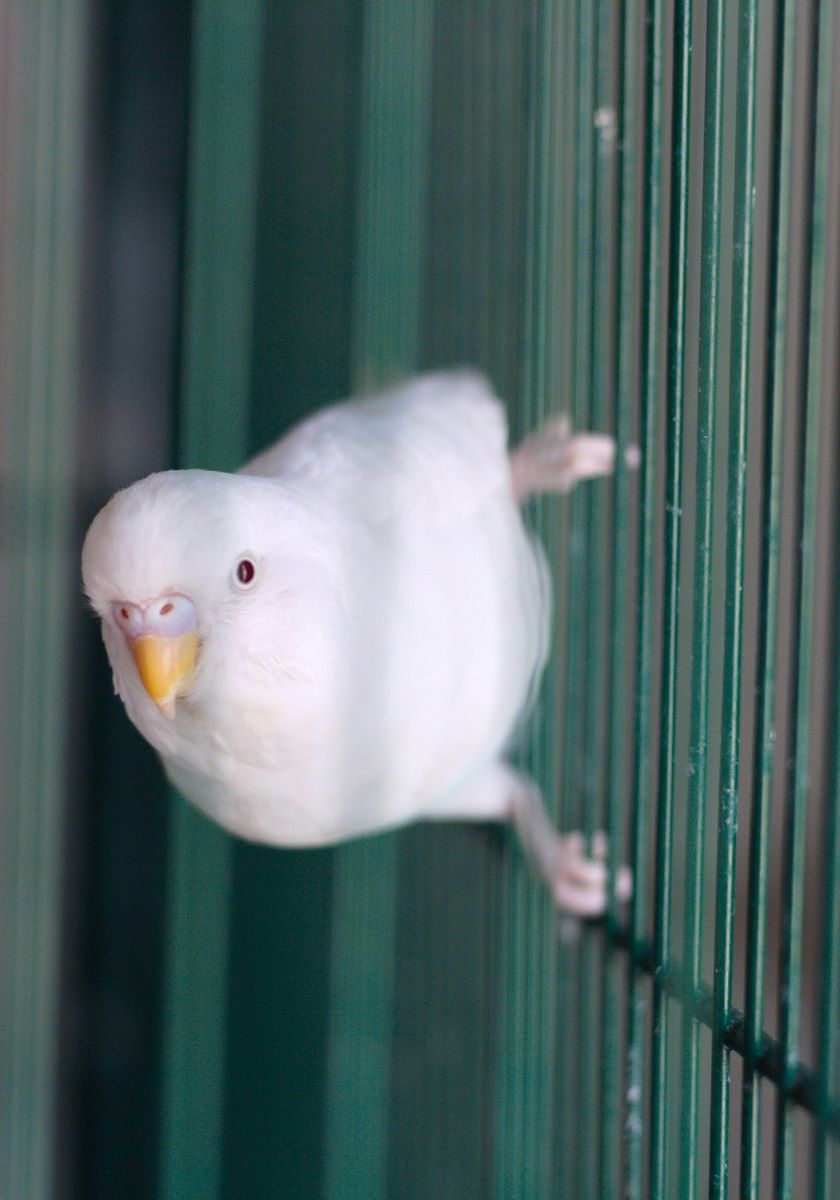
Are parrots the only birds that can talk?
It’s not common for birds in general to learn to imitate sounds, even surprisingly complex ones. Songbirds can do it, with corvids being particularly good at it. Yep: crows, magpies, jays and ravens can learn to speak human!
Starlings also tend to be highly talented. My old neighbors used to always wonder why sometimes when the phone rang, there would be no one on the line when they picked up. It took them years to figure out it was a starling in their garden that had taken a liking to the sound of the phone, and had learned to imitate it perfectly.
Other notable birds known for their mimicking abilities include:
- Mynahs (of the starling family)
- Lyrebirds
- Mockingbirds
Not all these birds learn to imitate sounds to fit in with their flock like parrots. Some do it to woo potential mates, while others use it as a mechanism to confuse predators.
So, why do parrots talk? Well, in conclusion, they acquired the ability basically as a result of peer pressure. In the home, they often do it to get your attention and maybe a treat!
If you have any more questions about why parrots talk or if you want to share your own experiences with a talking parrot, don’t hesitate to leave a comment below.
Lastly, if you were wondering how in the world it’s actually possible for a bird to imitate sounds as perfectly as some parrots do, head over to the post on how parrots talk to find out all about their smart brains and vocal anatomy.
Morell, V. (2011). Why do parrots talk? Venezuelan site offers clues.
